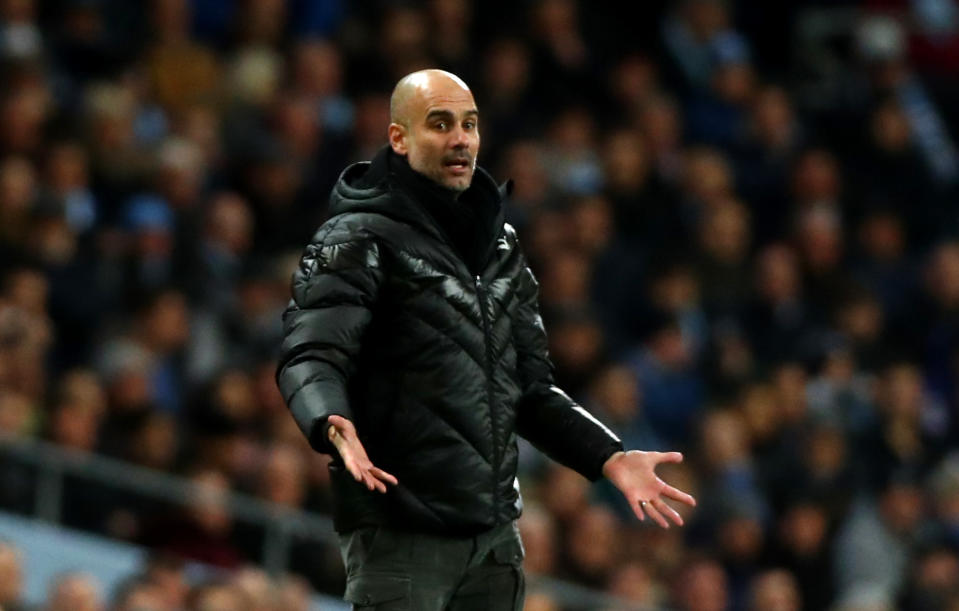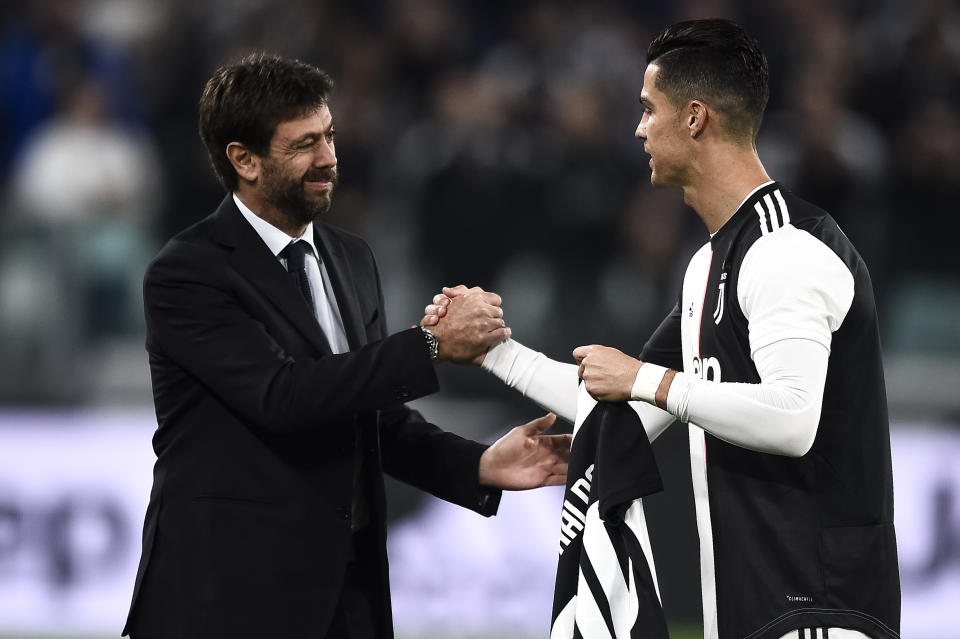Manchester City broke Financial Fair Play rules that simply aren't fair
UEFA dropped an atomic bomb on Manchester City.
That might sound like a hyperbolic way of describing the two-year Champions League ban that has been handed to the reigning Premier League champions, but it is the exact terminology that European soccer’s governing body used when Financial Fair Play rules were first touted in 2011.
“The atomic bomb is a ban from European competition,” said Jean-Luc Dehaene, the first chairman of UEFA’s Club Financial Control Body (CFCB), when asked about the maximum sanctions for breaching the rules.
Manchester City has a long-standing distrust of UEFA, stemming from years of perceived mistreatment. They were aggrieved by a $53 million FFP fine handed to them in 2014, and the Champions League anthem is regularly booed at the Etihad Stadium, where there are often seats left empty by loyal fans whose antipathy for UEFA runs deep.
There is a sense among City fans that they are singled out for rough treatment. That the clubs with “heritage” in the upper echelons of European competitions are protected, while the nouveaux riches newcomers like City and Paris Saint-Germain are kept on the fringes of the established cabal and punished for trying to fit in.

That belief was only strengthened by the Valentine’s Day punishment handed to the club. The CFCB found that City vastly overstated their $87 million annual shirt sponsorship with Etihad Airways. It was, according to their evidence, worth only $10 million annually, with the rest being made up by City’s owners directly. The effect of this alleged deception is to increase City’s revenues to within the acceptable parameters of FFP. They stand accused of cooking the books to game the system — a crime apparently worthy of the “atomic bomb.”
On the one hand, if City knowingly committed accounting fraud to circumvent the rules, it deserves punishment. On the other hand, the punishment it has been handed could be viewed as unfair and discriminatory.
And one may even suggest there is nothing remotely fair about FFP.
The rules were introduced to help clubs avoid long-term financial problems while pursuing short-term success. Per the rules, clubs are only allowed to spend about $5 million more than they earn in revenue over any given three-year assessment period, but the limit is increased to $32 million if the losses can be met by the owners.
The spirit of the rules is supposedly meant to help small clubs who vastly overspend, like Bolton and Bury in recent times, as much as mega-rich continental giants.
In 2010, then-UEFA president Michel Platini insisted that FFP was the solution for the “financial doping” happening in the game. (Platini was later banned from soccer for the kind of financial misappropriation that is endemic at UEFA.)
The problem with FFP, particularly in relation to City’s latest punishment, is that it does not seem to have been applied fairly.
For starters, the documents upon which the punishment was levied were published in German magazine Der Spiegel after being illegally hacked by Football Leaks’ Rui Pinto. He currently resides in prison awaiting trial for forgery, fraud and hacking.
Hacked documents would not typically be admissible as evidence in court, but even if they were, their existence reveals that UEFA did not do its job properly. If it failed to find the financial information from the hacked documents during its own investigations, it stands to reason that they could have missed similar accounting fraud at every other club in Europe.
What if City’s rivals were doing the same thing, but they go unpunished because they were not hacked? Is that fair?
Additionally, it’s clear that the kind of self-inflated sponsorship deals for which City has been punished are fairly common at the top level of the game. Paris Saint-Germain, for example, are owned by the Qatari ruling family and negotiated an annual $216 million sponsorship deal with … the Qatari Tourism Authority.
Chelsea’s playing staff is partially funded by a sponsorship deal with Europe’s largest natural gas supplier, Gazprom. Chelsea owner Roman Abramovich made a large chunk of his fortune from his ownership of Gazprom and sold his majority share to the Russian government.
And last year Juventus announced that its Jeep shirt sponsorship deal had increased to $100 million per season, which helped it keep the likes of Cristiano Ronaldo in Turin. Jeep and Juventus are both majority owned by the industrialist Agnelli family.
If those groups can use companies they own for inflated sponsorship deals, why is it fair that City is lambasted for essentially doing the same?

Furthermore, it’s also important to note that the spirit of FFP is to discourage reckless and unsustainable spending. This is not what Manchester City has done. The club has no debt to any banks, while its rivals Manchester United have the highest amount of debt in Europe and increased its debt by over $180 million last year alone.
United hasn’t breached the parameters of FFP, but it is clearly operating in a less fiscally responsible manner than City. Similarly, Barcelona and Real Madrid continually operate with high levels of debt, with Real Madrid going an eye-watering $647 million in the red in 2014.
Is it fair that some of Europe’s established “heritage” clubs can get away with carrying mountains of debt, while City is banned from the biggest competition while having none, and spending well within its means?
Not only does City’s punishment seem excessive and inconsistent, but it could be argued that FFP, by its very nature, is not fair.
In a capitalist market, why can’t a club spend whatever it wants to achieve success? By limiting the spending of teams like Man City and PSG, UEFA is merely putting the walls up around the established (and debt-ridden) European powerhouses.
Fans may not like it when clubs receive huge cash injections from owners of dubious repute, or with political motives. And that’s understandable. But the introduction of new and exciting challengers at the top of the game is surely healthy and desirable.
Suffice to say, City isn’t going to accept UEFA’s ruling without a fight. City’s combative club statement makes clear its disappointment, as well as its intention to take the matter to the Court of Arbitration for Sport. If CAS does not rule in its favor, City will likely take the case to the Swiss Supreme Court and tie things up in litigation for as long as it can.
Club chairman Khaldoon al-Mubarak famously said he would rather spend millions on the 50 best lawyers in the world to sue UEFA for the next decade than accept a punishment.
By taking on City in this manner, it’s possible UEFA has bitten off more than it can chew. City is richer, and can therefore afford better lawyers. UEFA is battling not just with a football club, but with the nation of Abu Dhabi.
Perhaps this situation accelerates the long-discussed breakaway European Super League. After all, if Europe’s biggest clubs don’t like UEFA’s rules, they could start their own tournament and make money on their own terms. As The Guardian’s Jonathan Wilson suggests, it’s also possible that City will eschew Europe’s premier competition to play lucrative friendlies on its own, perhaps in China or South America.
The intentions of Financial Fair Play are good, but its application has been troublingly inconsistent. UEFA has started playing a game of chicken with Manchester City, and it might not win.
More from Yahoo Sports:

 Yahoo News
Yahoo News 

